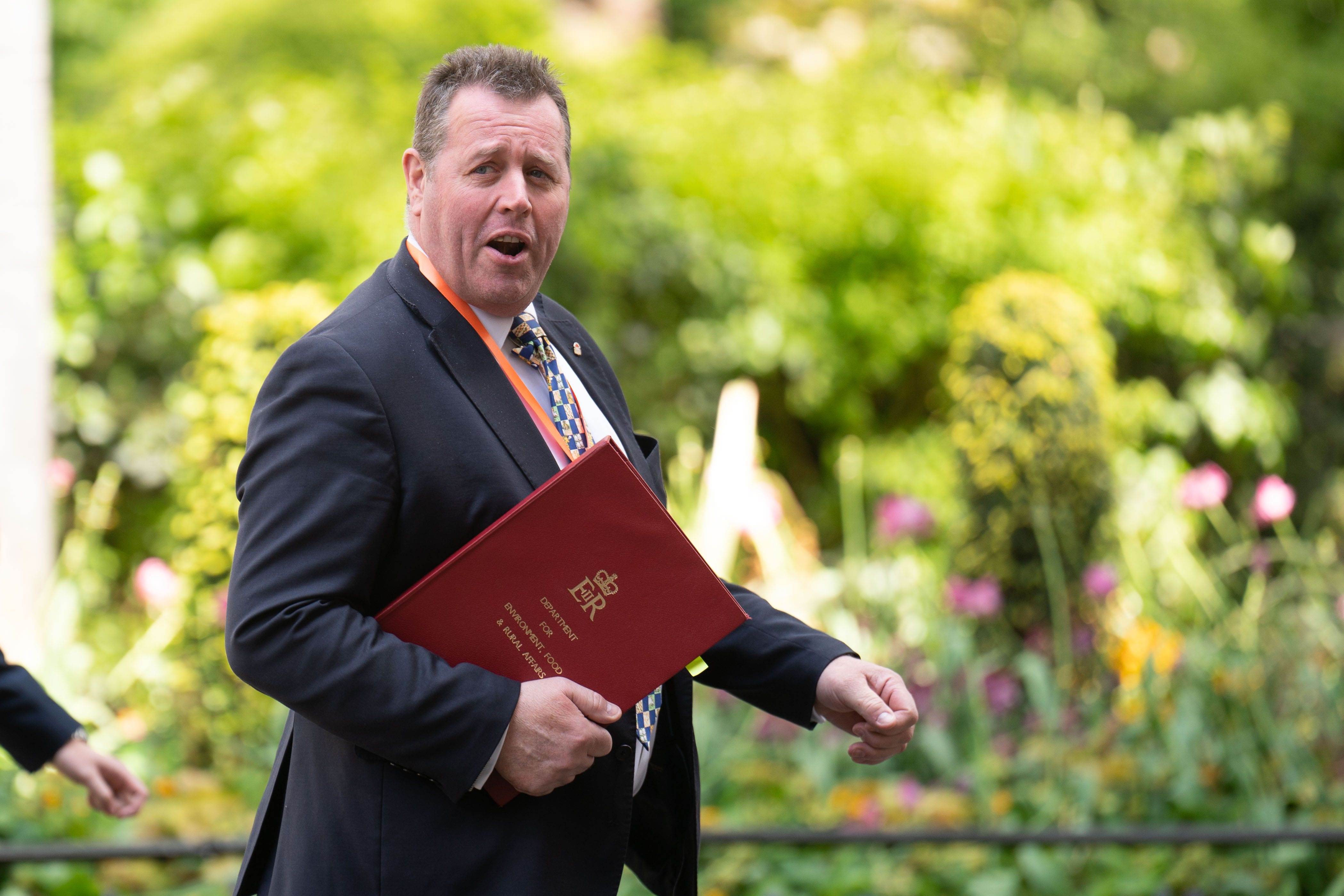Breed cattle that emit less methane to reduce environmental impact – minister
Mark Spencer said he would rather ‘improve the efficiency’ of meat production than tell people to eat less of it.

Genetically engineering cows to emit less methane is preferable to encouraging more vegetarianism, farming minister Mark Spencer has said.
Describing himself as a “freedom-loving economist” who does not want to impose “communist” policies on what people can farm nor tell consumers what to eat, the Conservative MP said people already had vegetarian options but were not opting for them.
Answering questions from the Green Party’s Caroline Lucas during an Environmental Audit Committee hearing, Mr Spencer said it was “oversimplifying” things to say that vegetarianism was better for the environment than meat eating because some vegetables were imported.
He told MPs: “What I think we can do is improve the efficiency of that meat production.
“So make sure that the cattle that we are breeding emit less methane, make sure that the feed systems by which we are feeding those animals emit less methane and grow their feed conversion rate more efficient(ly).
“I think we can do that by genetics, we can do that by management techniques and we can do it with new products which are coming on the market.”
Henry Dimbleby, in his National Food Strategy that he wrote for the Government last year, said “our eating habits are destroying the environment” and that the global food industry was the second biggest contributor to climate change outside of energy.
The co-founder of the restaurant chain Leon went on to say that agriculture alone produced 10% of the UK’s greenhouse gas emissions and that 85% of the UK’s food-producing land was for grazing livestock or their food, some of which would be needed to slow climate change and restore nature.
Ms Lucas said it was “perverse” for the Government to not incentivise less meat eating, after Mr Spencer said that conversion of pastures into forests would only offshore meat production, where environmental damage would be higher.
The MP for Sherwood said: “The message I’m trying to deliver to you is that we can achieve all of these things you want to achieve without going down that prescriptive route.
I think we can improve the efficiency of the way in which we're producing that food, so the environmental impact, both nationally and globally, is shrunk
“I don’t think it’s a black-and-white choice, I think we can do both.
“I think we can continue to produce meat on the uplands and do that in an extensive way which delivers those beautiful landscapes which we all enjoy.
“And I think we can improve the efficiency of the way in which we’re producing that food, so the environmental impact, both nationally and globally, is shrunk.”
Globally, the food system is the single biggest contributor to biodiversity loss, deforestation, drought, freshwater pollution and the collapse of aquatic wildlife, the Dimbleby report said.
Speaking to the Insect Decline and Food Security Committee earlier on Wednesday, TV presenter and naturalist Chris Packham said the Government should impose mandatory policies that would compel farmers and land managers to better protect nature.
He also said language was “incredibly important” in shaping how people viewed the biodiversity crisis, telling MPs: “I think we in the conservation fraternity abuse it.
“One of the frequent complaints that I have is we talk about the loss of species, and I know that you’ve heard it in the sessions.
“We haven’t lost them, we’ve not inadvertently left them behind the shed. We’ve destroyed their habitat or we’ve destroyed them directly, principally with pesticides.
“We are lazy with our language and I think we could all do with a brush-up on that one.
“Again, just on that account, we frequently talk about a mass extinction event, which is dramatic, it’s apocalyptic language.
“But is it an extinction event? Or was it an extermination event? Because we are the principal drivers of that extinction at this point in time.”
Subscribe to Independent Premium to bookmark this article
Want to bookmark your favourite articles and stories to read or reference later? Start your Independent Premium subscription today.
